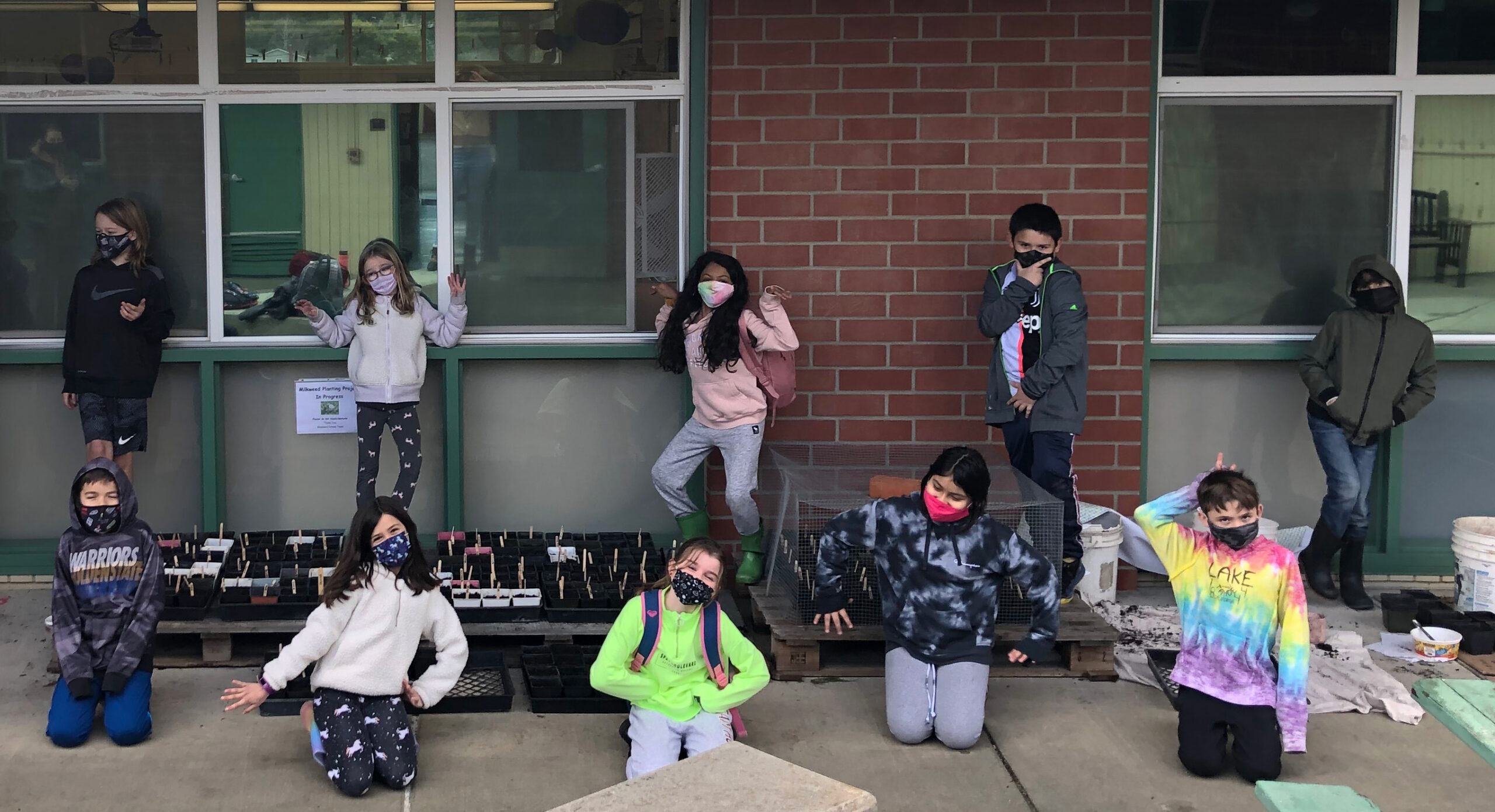| Contact: | Audrey Fusco, Native Plant Nursery Manager, audrey@seaturtles.org |
Students Help SPAWN Grow Narrowleaf Milkweed to Support Declining Monarch Populations
To help the western monarch butterfly population bounce back from its sharply declining population, local fourth and fifth grade students at Glenwood Elementary are helping SPAWN grow narrowleaf milkweed (Asclepias fascicularis), the only host plant on which monarchs can lay their eggs. This year, data has recorded a near disappearance of the butterfly with less than 2,000 individuals counted in California, and less than 200 in coastal Marin County—a record low. Pressure from humans including habitat loss, pesticide use, and climate change are contributing to the decline.

California narrow-leaf milkweed blooms from July to September and should only be planted in inland areas to best support overwintering monarchs.
SPAWN joined the national call to action to help the western monarch population bounce back from its extremely low size by providing Marin County residents with guidelines on how planting native nectar plants like milkweed can improve habitat for monarchs. Last year, SPAWN and CNPS Marin partnered to help Glenwood Elementary 4th grade science teacher Julie Ryan plant a pollinator garden in front of the school. During the past year many monarchs passed by the garden and benefited from the nectar plants and milkweed.

Students sowed the milkweed seeds at the end of January and they will germinate as the weather warms up.
This year we have partnered with the fourth graders at Glenwood to grow narrowleaf milkweed (Asclepias fascicularis) at the school. Students sowed the milkweed seeds at the end of January and they will germinate as the weather warms up. The students will check on the progress of germination and will water and care for the seedlings through the rest of the school year.
The milkweed will be donated to SPAWN at the end of the school year, but some of it will be returned to Glenwood next winter so that the “Green Team” at the school can plant milkweed drifts in an open field behind the school. The rest of the milkweed plants will be planted in other school gardens and donated to restoration projects and gardens that are in appropriate locations in Marin, which are more than 5 miles away from the coast.





